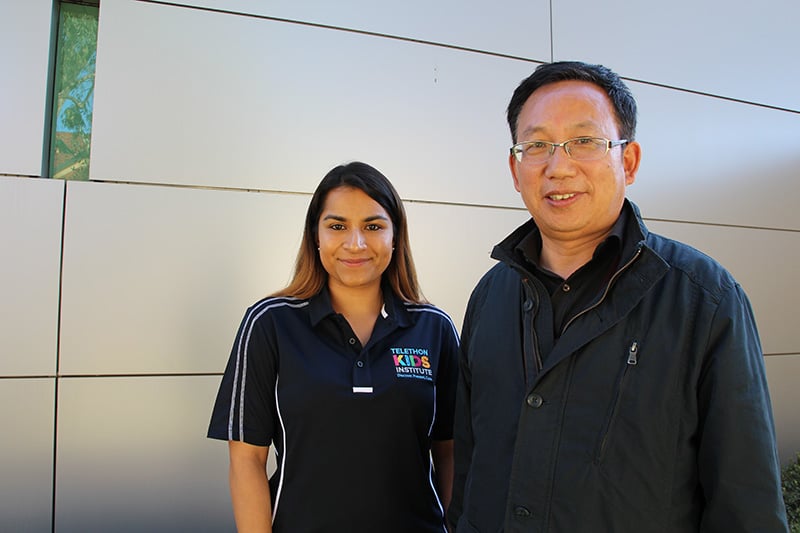Chinese immigrants who live in a Western environment like Australia have an increased risk of allergies, hay fever and asthma, new research led by Curtin University and The Kids Research Institute Australia has found.
The research, published in the journal Allergy, found that Chinese immigrants who have lived in a Western environment for more than seven years have a lower resistance to common allergic diseases, due to less exposure to common bacteria in modern society.
Lead author Dr Brad Zhang, an Associate Professor with the School of Public Health at Curtin University and an Honorary Research Fellow at The Kids Research Institute Australia, said the research investigated changes in the immune system among the Chinese immigrant population.
“Our immune systems are trained by exposure to environmental microorganisms, which means less exposure to these harmless microorganisms can delay maturation of the immune system and this is what causes allergies in childhood,” Associate Professor Zhang said.
“The aim of our research was to further explore the changes to the immune system in Chinese immigrants once they had relocated to a Western climate, and we did this by collecting samples from 22 newly arrived and 22 long-term Chinese immigrants living in Perth.
“We found that newly arrived immigrants had higher levels of a common antibody, known as IgG1, to some bacteria. This is possibly due to higher levels of contact with bacteria in their previous environments, which resulted in stronger immune systems compared to long-term residents.
“This study found the link between the body’s first line of immune defence and the development of a person’s adaptive immune system acquired throughout their life was stronger in newly arrived Chinese immigrants, meaning they may have better immunity compared to someone who has lived in Australia for more than five or seven years.”
Associate Professor Zhang explained that the research uncovered important information about how different immune systems react in Western countries like Australia and Eastern environments such as in China.
“Our findings indicate that more hygienic environments may impact our immune system, which in turn causes a higher risk of asthma, hay fever and allergic reactions,” Associate Professor Zhang said.
“We were able to determine that Chinese immigrants who have adapted to the Western lifestyle are more likely to be impacted by allergic diseases, due to the increased rate of allergy and asthma in developed countries like Australia.”
The laboratory-based research was conducted by PhD candidate Aarti Saiganesh at The Kids Research Institute Australia in collaboration with Associate Professor Belinda Hales and Professor Patrick Holt.
The research paper, ‘A marked shift in innate and adaptive immune response in Chinese immigrants living in a Western environment’, was co-authored by researchers from The University of Western Australia, The Kids Research Institute Australia, and Xinxiang Medical University, located in Xinxiang city in China’s Henan province. It can be found online here.
About Curtin University
Curtin University is Western Australia’s largest university, with more than 56,000 students. Of these, over 14,000 are international students. The University’s main campus is in Bentley near the Perth CBD. Curtin has six other campuses across WA, Malaysia, Singapore, Dubai and Mauritius. Curtin also has a presence at a number of other global locations.
Curtin celebrated ‘50 Years of Innovation’ in 2017 – the combined history of the Western Australian Institute of Technology (WAIT), which opened its doors to students in 1967 and Curtin University, which opened in 1987.
Today, Curtin is estimated to be ranked 180th and in the top one per cent of universities worldwide, and 9th in Australia in the Academic Ranking of World Universities 2017 (ARWU), and features highly in a number of other key world rankings.
The University has built a reputation around innovation and an entrepreneurial spirit, being at the forefront of many high-profile research projects in astronomy, biosciences, economics, mining and information technology. It is also recognised globally for its strong connections with industry, and for its commitment to preparing students for jobs of the future.
For further information visit curtin.edu.au.
About The Kids Research Institute Australia
The Kids Research Institute Australia is one of the largest and most successful medical research institutes in Australia, comprising a dedicated and diverse team of more than 500 staff and students.
We've created a bold blueprint that brings together community, researchers, practitioners, policy makers and funders, who share our vision to improve the health and wellbeing of children through excellence in research.
The Institute is headed by leading paediatrician and infectious diseases expert Professor Jonathan Carapetis, with Founding Director Professor Fiona Stanley now Patron. The Kids is independent and not-for-profit.
The majority of funding comes from our success in winning national and international competitive research grants. We also receive significant philanthropic support from corporate Australia and the community.

